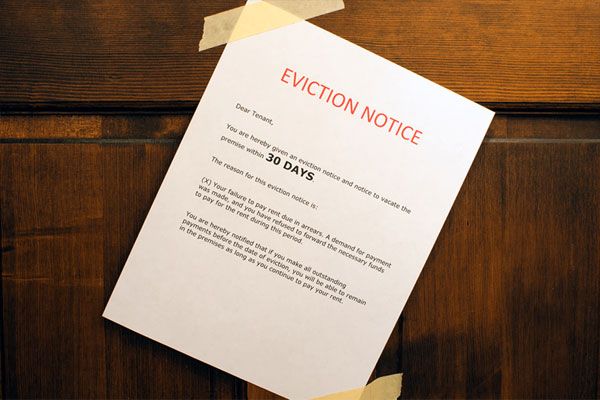General
How To Evict A Tenant And Recover A Property In Lagos State
-
READ ALSO: How To Get A Divorce In Nigeria
While notifying tenants through word of mouth may be futile, there are legal actions that can be taken to get outcomes. However, you must be aware that evicting renters from a property by force is illegal. As a result, you must always strive to stay on the right side of the law.
That is why we have written this post to shed additional light on the subject. We chose the Lagos State Tenancy Law since it is similar to the laws in other parts of the country.
Let’s jump right into the deep end, shall we?

Before you consider evicting a tenant, make sure that the tenancy period of the alleged renter has finished or will end by the time the eviction process is completed.
Otherwise, the entire eviction procedure will be nullified.
Now, let’s look at the procedures you will need to follow to ensure a tenant leaves your house without causing any problems. How To Evict
1. Serve Statutory Notices
You must understand that statutory notices follow a special format. So, you cannot wake up one day and serve notices to your tenant. You need to follow approved format of statutory notices. That being said, there are two types of statutory notices. First, we have the “Notice to Quit”. This is the first statutory notice you serve to your tenant. The Notice must however be in accordance with the tenancy agreement earlier established or the general tenancy agreement of the state. They include the following:a) Yearly Tenancy
Here, a tenant who rented a property for a year period shall be given a minimum of six months’ notice.b) Half-Yearly Tenancy
A tenant who had earlier paid for six months’ rent is expected to be given three months’ notice at the minimum. How To Evictc) Monthly Tenancy
Unlike the type of tenancy period, a notice period of at least one month is required for the tenant under this category. The second type of statutory notices is the “Notice of Owner’s Intention to Recover Premises” Here, you serve this type of notice after the tenant refuse to vacate the property. This type of notice gives a seven-day period, signifying that you would proceed to the law court for further legal actions should the tenant proves irritable.2. Institute A Recovery of Premises Action in Court
If the tenant remains adamant, you should go file a court action in the law court. Either the magistrate court or high court can deal with the case. However, if the value is below ten million naira, the magistrate court is most appropriate. Above ten million naira, you should go file the case in the high court. Once the case has been filed in the court, there are two possible outcomes. The two parties can either settle amicably or allow the court give final verdict on the matter. If the tenant or the counsel representing the counsel plead for settlement of the case, the law recognizes and approves this action. However, the two parties must come up with settlement document which would states the terms of settlement. This document is presented before the court for judgement. On the other hand, if the tenant refuses settling the case amicably, the court swings into action. Evidences and witnesses are summoned before the final verdict is given. Meanwhile, the trial may take up to six months to twelve months. However, after the final verdict is given and the tenant is found guilty, he is made to pay up his outstanding balance and evicted by the court. The tenant is usually expected to pack all of his belongings from the landlord’s premises immediately after the judgement. Failure to do so will attract a forceful eviction by the law court. How To EvictDiscover more from Jojo Naija
Subscribe to get the latest posts sent to your email.
Continue Reading
